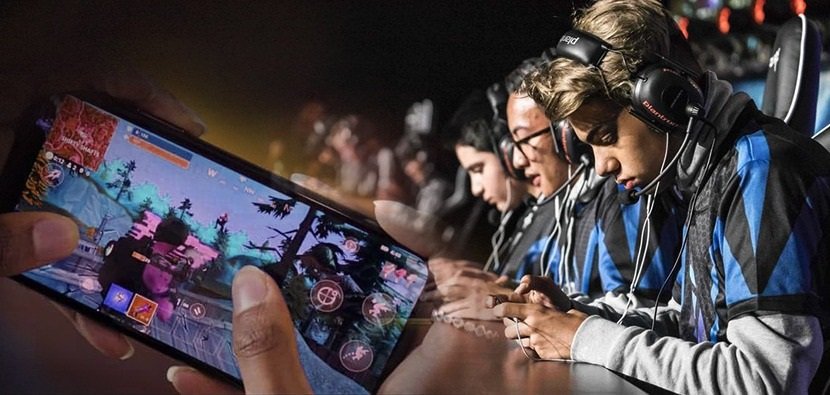In 2024, the esports industry continues its steady growth, drawing the interest of a global audience. Several key trends are reshaping the competitive gaming landscape, including the emergence of new disciplines and a significant increase in popularity. This year marks a period of notable change and development in the world of esports.
While some things in esports, like cs gambling or betting, remain the same, some processes continue to evolve. In this article, we will tell you what the industry is like in 2024 and what to expect from it in the near future.
The Rise of New Esports Disciplines
One of the most significant trends in 2024 is the advent of new esports disciplines. While traditional titles like League of Legends, Dota 2, and Counter-Strike: 2 maintain their stronghold, innovative genres and games are carving out their niche in the competitive scene.
Tactical Shooters and Realistic Battle Royales
The tactical shooter genre, led by titles like Valorant, has seen substantial growth. Valorant’s blend of strategic gameplay and individual skill continues to draw large audiences and attract significant investment. Its success has spurred the development of new tactical shooters that emphasize realism and tactical depth. Games such as “Project Epsilon” and “Recon Squad” are gaining traction, offering intricate gameplay mechanics and immersive environments that challenge players in novel ways.
Additionally, the battle royale genre is evolving. While Fortnite and PUBG pioneered the space, new entrants like “Survival Grounds” and “Apex Legends: Extreme” are pushing the boundaries with enhanced realism, larger maps, and complex survival mechanics. These games focus on strategic planning, resource management, and team coordination, appealing to both players and viewers who crave more depth and realism in their esports experience.
Simulation and Strategy Games
Simulation and strategy games are also stepping into the esports limelight. Titles like “SimCity Showdown” and “Civilization Online” have transformed traditional single-player experiences into competitive formats. These games challenge players to build, manage, and strategize on a grand scale, offering a refreshing alternative to fast-paced action games.
The competitive scene for these games emphasizes long-term planning, resource management, and tactical foresight, attracting a diverse audience that enjoys cerebral competition. The inclusion of these games in major esports tournaments highlights the industry’s recognition of their potential to captivate a broad spectrum of viewers.
Growing Popularity and Mainstream Integration
The popularity of esports in 2024 is undeniable. With viewership numbers rivaling those of traditional sports, esports is becoming a staple in mainstream entertainment. Several factors contribute to this surge in popularity.
Enhanced Production Quality and Viewer Experience
Advancements in technology and production quality have revolutionized the way esports is broadcasted. High-definition streams, interactive features, and virtual reality (VR) integrations provide viewers with immersive experiences. Major tournaments now offer multi-angle replays, real-time statistics, and augmented reality (AR) elements, making broadcasts more engaging and informative.
Furthermore, platforms like Twitch, YouTube Gaming, and Facebook Gaming have introduced new features to enhance viewer interaction. Real-time polls, live chat integration with professional players, and community-driven content create a more inclusive and interactive viewing experience. These innovations not only attract more viewers but also keep them engaged for longer periods.
Corporate Investment and Sponsorship
The influx of corporate investment and sponsorship deals has propelled esports into the mainstream. Major brands from various industries, including technology, automotive, and fashion, are recognizing the potential of esports to reach a younger, tech-savvy demographic. Sponsorship deals with companies like Nike, BMW, and Samsung provide financial stability for esports organizations and players, enabling them to focus on honing their skills and delivering top-tier performances.
In addition, partnerships with traditional sports franchises and celebrities are bridging the gap between esports and mainstream sports. Collaborations with NBA teams, football clubs, and renowned athletes help to legitimize esports and introduce it to a broader audience. These partnerships often result in crossover events and hybrid tournaments that attract fans from both worlds.
Educational and Career Opportunities
The growing popularity of esports has led to the development of educational and career opportunities within the industry. Universities and colleges are offering esports programs and scholarships, recognizing the potential for students to build careers in this burgeoning field. These programs cover a wide range of topics, including game design, sports management, and digital marketing, providing students with the skills needed to succeed in various aspects of the esports ecosystem.
Moreover, the rise of esports academies and training facilities has professionalized the path to becoming an esports athlete. These institutions offer structured training programs, nutritional guidance, and mental health support, mirroring the infrastructure found in traditional sports. As a result, aspiring players can now pursue esports as a viable career option, with access to the resources and support needed to reach the highest levels of competition.
Social Impact and Community Building
Esports in 2024 is not just about competition; it is also about community and social impact. Esports organizations are increasingly involved in charitable initiatives and community-building activities. Events such as charity streams, community tournaments, and collaborative projects with non-profit organizations highlight the positive influence of esports on society.
Furthermore, esports provides a platform for cultural exchange and global connectivity. International tournaments bring together players and fans from diverse backgrounds, fostering a sense of unity and mutual respect. The global reach of esports helps to break down cultural barriers and promote inclusivity, making it a powerful force for positive change.
Conclusion
As we move through 2024, the trends in esports reflect an industry that is dynamic, innovative, and rapidly growing. The emergence of new disciplines, the integration of advanced technologies, and the increasing mainstream acceptance are driving esports to new heights. With its expanding influence on entertainment, education, and social impact, esports is poised to continue its ascent, captivating audiences and shaping the future of competitive gaming. The journey of esports is far from over, and 2024 is just another chapter in its exciting and evolving story.

